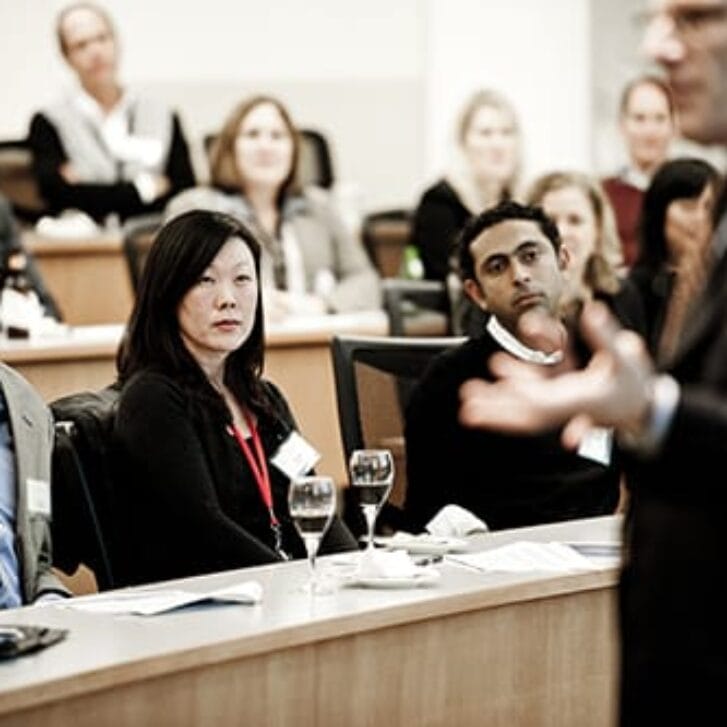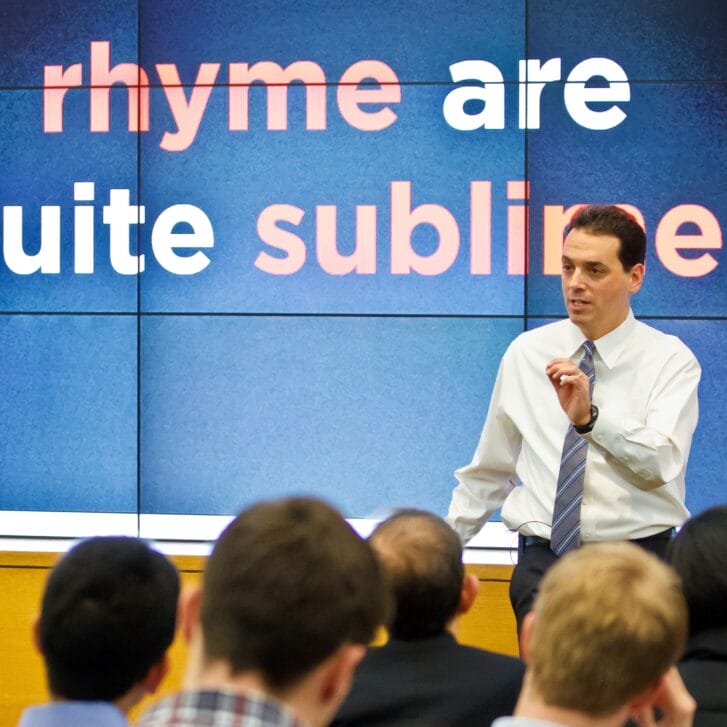All the talk about the 1 percent and the 47 percent during this past election cycle got Punit Renjen thinking about what Deloitte, or any for-profit business, stands for. Is it all about making money? The chairman of Deloitte LLP came to Wharton’s campus and shared some of his insights.
What Renjen realized is that a common thread among exceptional organizations is that they stand for a higher calling beyond pure capitalistic impulses. What’s more, this essence of what an organization is about gets put into strategic action. This sense of “who we are,” Renjen explained, transcends individual leaders.
Deloitte data bears this out. Launched five years ago, the so-called Persistence Project at the international consultancy has aimed to identify the truly superior firms among U.S. publicly traded companies, and then identify what has consistently kept them at that level. Mike Raynor, Ph.D., director of Deloitte Consulting, explained that Deloitte was hoping to build on the existing research on this topic by providing insights to help people faced by hard choices and tradeoffs, for which data and the usual methods of analysis do not provide clear answers.
Speaking alongside Renjen in Huntsman Hall, Raynor said that three decision-making rules appear to be shared by all the exceptional entities that they IDed in the Deloitte research:
• Better before cheaper.

Punit Renjen, chairman, Deloitte LLP
• Revenue before cost.
• There are no other rules.
Deloitte believes it meets these three rules as a superior organization. As Renjen explained in response to an audience question, Deloitte has not gone into outsourcing in a big way because in that business “cheapest always wins.”
Of course, those rules are deceptively simple. When deciding on tough tradeoffs, Raynor said, there is a lot more room to get it wrong than right.
“There are no guarantees,” he said, adding that the Persistence Project’s three rules do not tell companies how to do “better” or how to choose revenue over cost.
Renjen and Raynor spoke on campus on Jan. 16, 2013, as part of the student-planned Wharton Leadership Lecture Series.


























